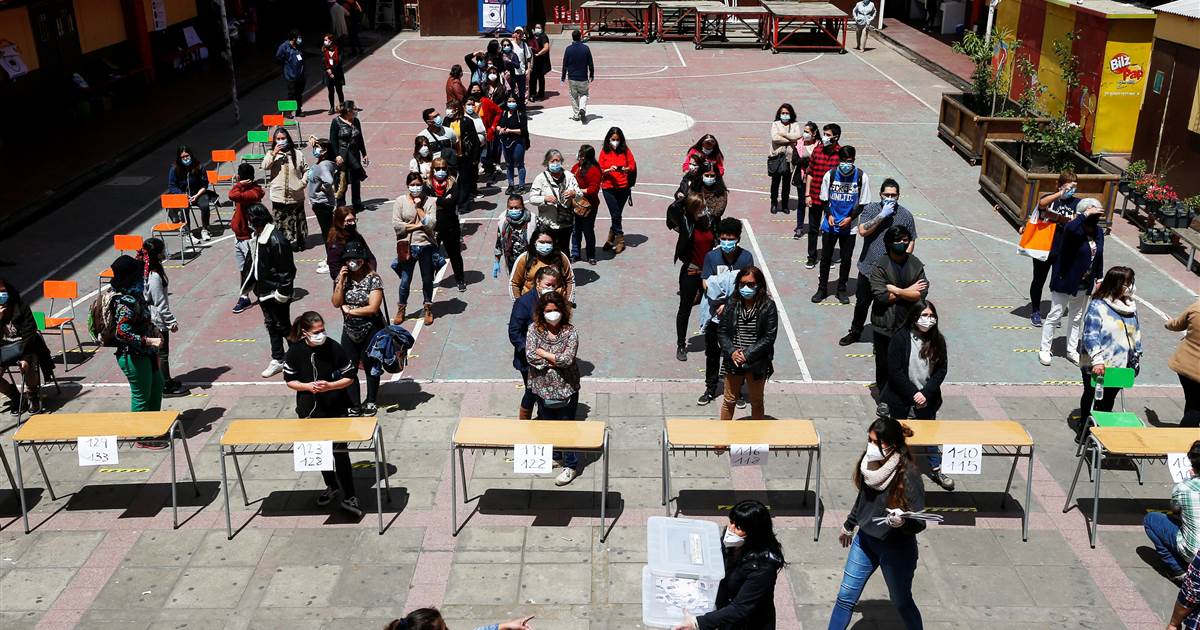
SANTIAGO, Chile — On the wooden benches of Santiago’s Estadio Nacional, university professor Luís Cifuentes spent long, empty days in the spring of 1973 trying to ignore the agonizing screams emanating from the bowels of the stadium.
Around 40,000 left-wing political prisoners passed through the stadium during Gen. Augusto Pinochet’s brutal dictatorship (from 1973 to 1990), with an estimated 3,200 murdered or disappeared and 27,000 tortured.
Now aged 73, Cifuentes survived, but he did not escape the abuses. He was electrocuted and interrogated by soldiers in the largest of some 1,168 detention centers throughout Chile.
“On one occasion I was blindfolded and forced to march around the stadium in the dark,” he said. “I tripped over something strange, and reached down to realize that they were the cold bodies of murdered prisoners.”
On Sunday the stadium became one of the capital’s most symbolic polling centers, and Cifuentes returned nearly half a century later to accompany his wife, Gricelda Figueroa, 56, as she cast her vote in a nationwide referendum.
Late Sunday, Chile’s electoral commission was reporting that nearly 15 million people—including Cifuentes and Figueroa—had turned out, 78 percent of whom had voted to begin the process of replacing the dictatorship-era 1980 constitution, a symbol of the brutal Pinochet years.
A new constitution would seek to redress imbalances in Chile that have seen it become one of the world’s most unequal countries, with power concentrated deeply with the ruling elite mainly based in Santiago. Health, education, ethnicity and gender are all key issues at the center of the debate.
As Chile prepares for a new chapter that breaks with its bloody past, a vociferous young generation has added their voices to the clamor for change.
“My generation are the sons and daughters of the people who lived through the dictatorship,” said Alondra Arellano, who at 22 is Chile’s youngest party leader. She was elected as the president of the center-left Convergencia Social party in August.
“Our parents carry the scars of those years and live in fear of raising their voices,” she said. “I have family who were tortured or exiled, and my generation realized that, if anything was going to change, we would have to take action ourselves.”
Arellano comes from the low-income Santiago suburb of La Cisterna and cut her teeth in university politics, leading Chile’s vociferous feminist movement in 2018. She decided to take the step into traditional politics in an effort to change the system from within.
Her generation is keen to avenge what they see as the lack of justice apportioned when the dictatorship came to an end. Pinochet was indicted on more than 300 charges including human rights abuses and arrested in 1998. He died in 2006 having served as an unelected “life senator,” immune from prosecution.
President Sebastián Piñera said on Sunday night,“until now, the constitution has divided us. From today forward, we should all collaborate in making the new constitution a symbol of unity and stability.”
A relic of Pinochet’s brutal past
Protests over inequality exploded up and down the country in October last year, and Chile has since been gripped by a socio-political crisis. Owing to its ties to Pinochet, the constitution had become a focal point of the anger.
With Piñera’s approval rating tumbling towards a nadir—it would reach a historic low of 6 percent in January, the lowest for any president since Chile’s return to democracy—he brokered a deal with party leaders last November to hold a plebiscite on writing the country’s first democratically drafted constitution.
The current document was ratified by a fraudulent referendum in 1980, enshrining an extreme interpretation of free-market principles and privatization that its critics say prioritized profit over life.
For the proponents of the model, the constitution was the cornerstone of Chile’s growth and stability since the return to democracy in 1990. World Bank data shows that Chile’s GDP grew by about 800% between 1990 and 2018; yet a third of total wealth is owned by the richest 1%.
For many, the constitutional process is an opportunity to heal the deep wounds within Chilean society, covered over by the country’s outward economic success and a tradition of apathetic silence among the country’s ruling elite.
Fundamental social rights to housing are not enshrined, while mentions of health care and education refer more to a choice of provider than the guarantee that the state will provide them. The country’s Indigenous population — which is 13 percent — are not currently recognized and treated simply as “Chilean.”
However, Chile will now draft the first constitution of any country with equal participation of women, after a bill was approved in March guaranteeing gender parity.
“Chilean society is incredibly segregated, and our elite have very few communication channels that reach beyond their circles,” said Daniel Brieba, a political scientist at Santiago’s Adolfo Ibáñez University. “The social movement wasn’t necessarily asking for a new constitution — that demand coalesced later — but even though it might be a necessary symbolic step to replace the Pinochet constitution, it’s also a long way from being sufficient to address all of the problems we have in this country.”
While the vote gave a significant mandate to the rewriting of the constitution, the process is also likely to be fraught, given the divisions within Chile’s political class and society at large.
“Some kind of consensus will come of this, and it’ll be a fresh start for Chile, at least symbolically, although with such polarization in Chile there are legitimate fears that this could lead to an incoherent document,” Brieba added.
For Cifuentes though, the step Chile has taken is enough.
“We will never get back the country we were building before the dictatorship, but we have a chance to make something better than this,” he said.
“When there is a new constitution, a whole chapter of my life will have been completed, but that hasn’t happened yet,” he said. “This vote has been symbolic and emblematic of what I want: to get away from Pinochet’s constitution.”
Follow NBC Latino on Facebook, Twitter and Instagram.

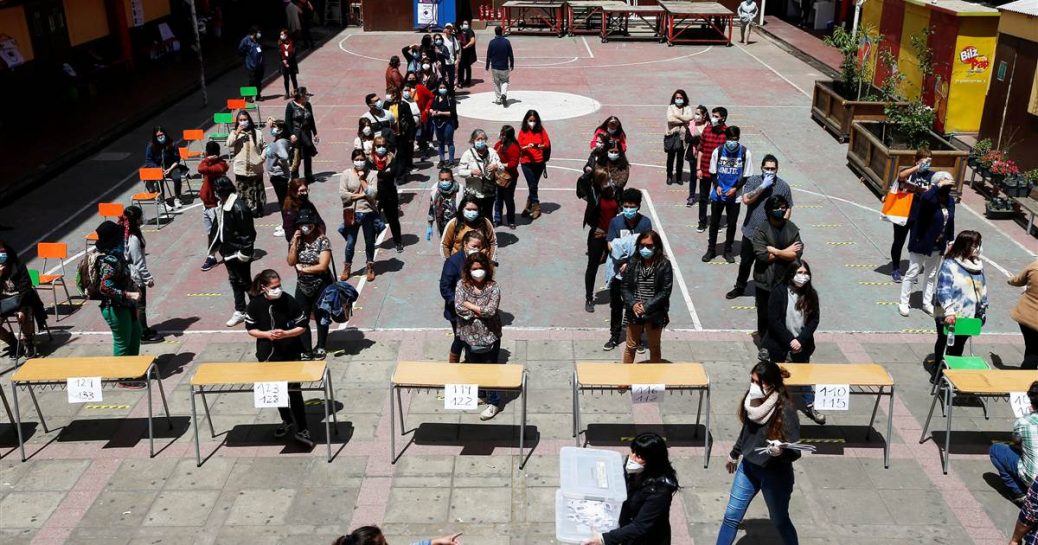
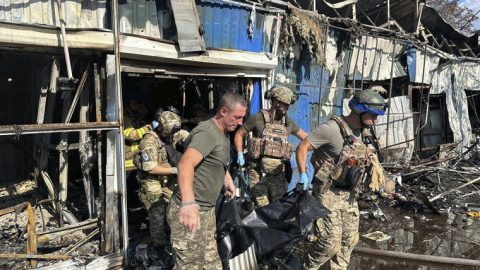
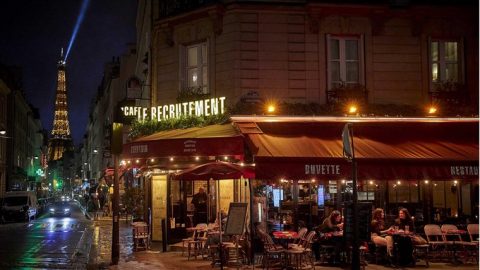
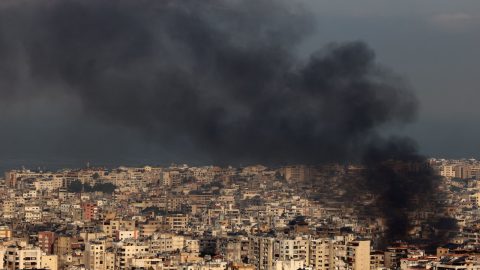
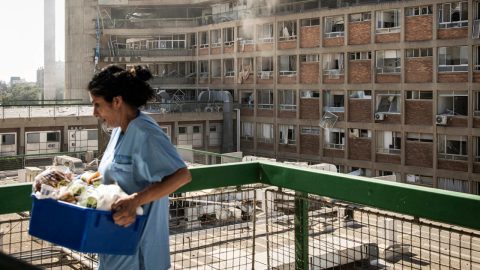

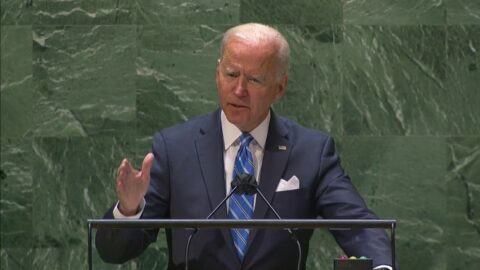
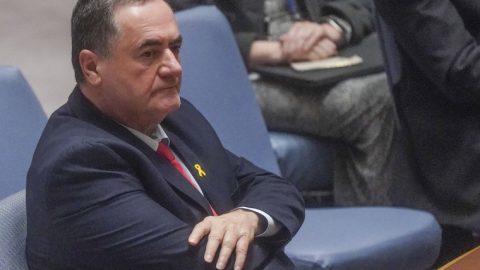

Recent Comments